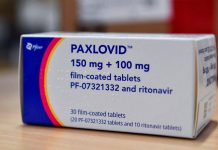Alzheimer’s disease is a progressive neurologic disorder that causes the brain to shrink and brain cells to die, according to Mayo Clinic. It is one of the most common causes of dementia – a continuous decline in thinking, behavioral and social skills that affect a person’s ability to function independently.
Nearly 5.8 million Americans aged 65 and above have Alzheimer’s disease. And of those, 80% are aged 75 and above.
As with any other medical condition, in Alzheimer’s, physicians take several factors under consideration before prescribing medications that will benefit the patients.
In 2015, the Alzheimer’s Association Medical and Scientific Advisory Council said physicians play a key role in deciding whether patients should switch from brand drugs to generic drugs for Alzheimer’s.
Generic drugs available for Alzheimer’s include:
Cholinesterase Inhibitors:
- Donepezil (Generic Aricept)
- Galantamine (Generic Razadyne, Razadyne ER, Reminyl)
- Rivastigmine (Generic Exelon)
N-Methyl-D-Aspartate (NMDA) Receptor Antagonists:
- Memantine (Generic Namenda)
Also called acetylcholinesterase inhibitors, cholinesterase inhibitors block the normal breakdown of acetylcholine, according to Drugs.com. Acetylcholine is one of the brain chemicals, which has a key role in attention, memory, and motivation. In Alzheimer’s, patients have low levels of acetylcholine in the brain.
NMDA receptor antagonists like memantine help in balancing glutamate, another brain chemical involved in memory and learning. Memantine is currently available in an “immediate release” version and “extended-release” version. Generic Namenda “immediate release” version is available in generic, but the “extended-release” version is not.
Generic drugs of Alzheimer’s are less expensive than their branded counterparts so consumers may have questions on whether it is safe to use a generic version.
People with Alzheimer’s or their caretakers should first consult their doctors before switching to generic medicines.
Generic drugs have the same active ingredients as brand-name drugs, but they are not always entirely identical because of the inactive ingredients. Some patients may even notice subtle differences in the effectiveness of generic drugs compared to brand-name drugs. Some physicians have come across patients with a variety of responses, both positive and negative, after using generic drugs for Alzheimer’s. Therefore, it is important for physicians as well as patients to continue to have access to all brand-name and generic drugs for not only Alzheimer’s but also other medical conditions.




















